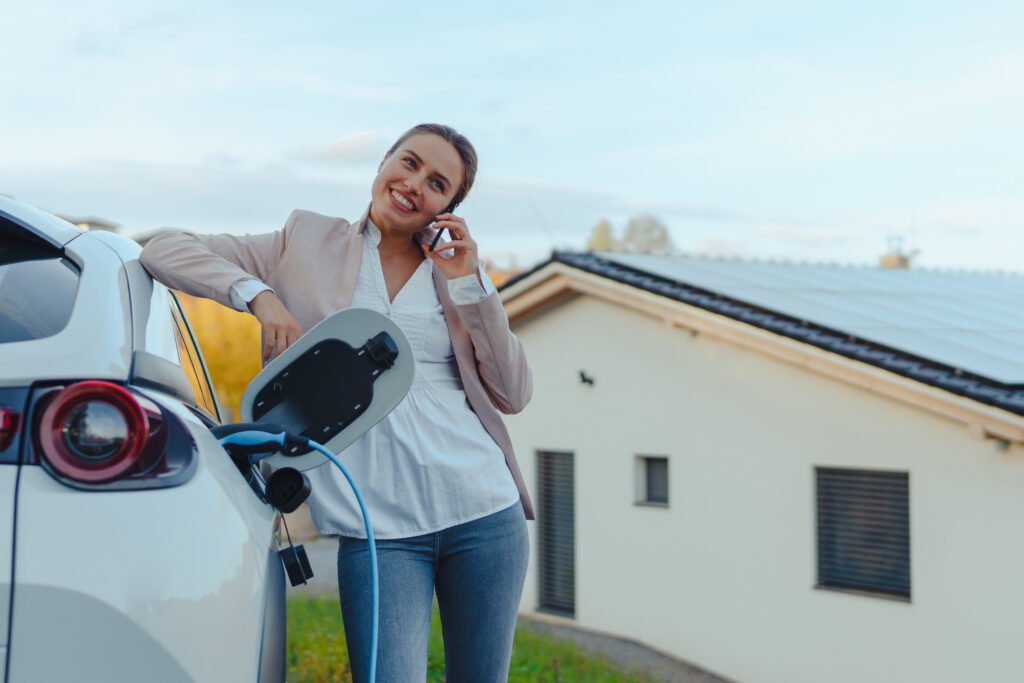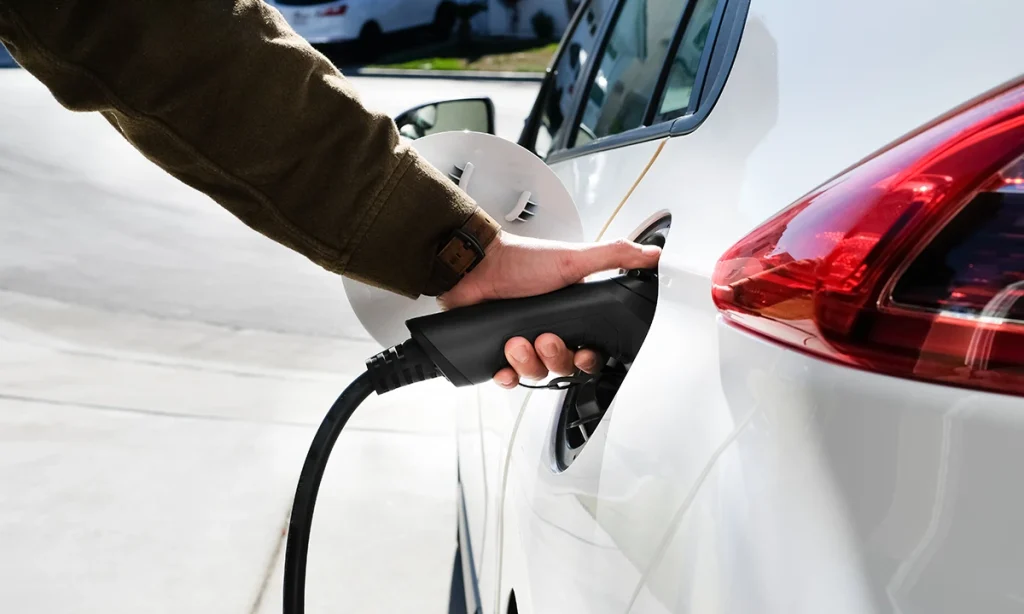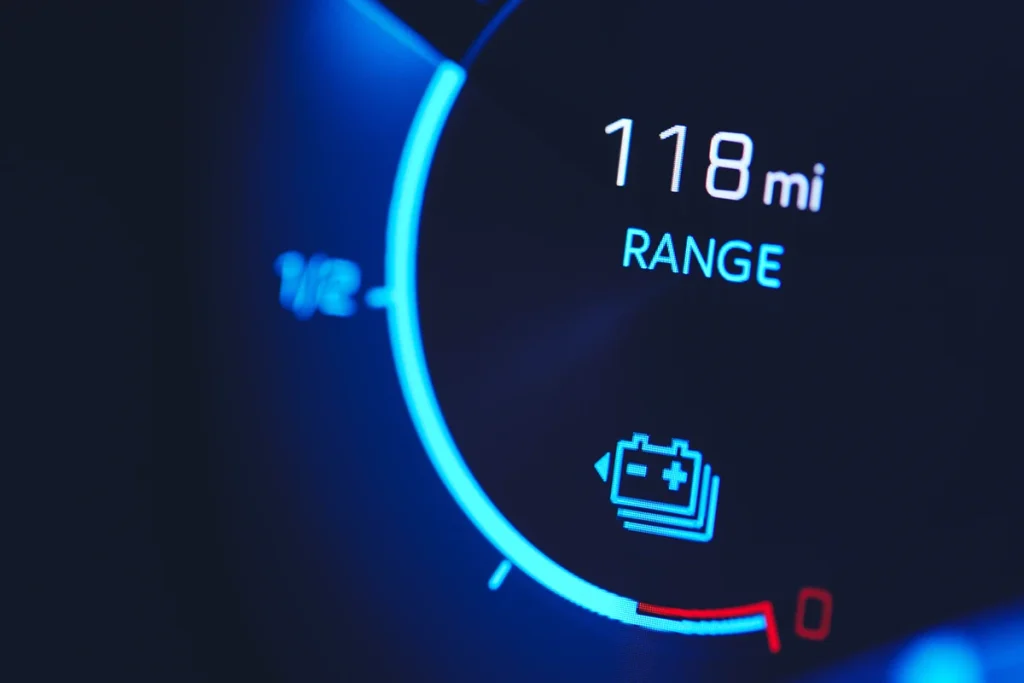Electric cars (EVs) are becoming increasingly popular as the world moves toward a cleaner and more sustainable future.
They are healthier and less expensive for the environment, so many people are considering converting to them. People frequently inquire, “Can I have a charging station at my house?” The affirmative answer is excellent news. Installing a charging station at home is a valuable and straightforward way to charge your electric vehicle daily.
In this article, We’ll go over how to set up a charging station at home and all its advantages for your front entrance. Enjoy the flexibility of quick charging at home and stop worrying about running out of juice.
Power Up At Home: Exploring The Benefits Of Installing A Charging Station
As more people transition to electric cars, the demand for practical and effective charging options grows. Making the most of your EV and saving money on gasoline expenditures is easy with a home charging station.
- Convenience
Installing a power source at home simplifies things, which is one of its most significant benefits. You do not need to locate a public charging station or an open receptacle to charge your electric vehicle. You can do it in your own garage or backyard. This means you will no longer need to visit a petrol station or wait for a charging station.
- Cost Savings
You may save money by recharging your electric vehicle at home instead of just at public charging stations. The price of power at home is typically less expensive than power at public charging stations. Home charging is even more affordable because some energy companies offer special rates or perks to EV owners.
- Time Savings
You also save time when you charge your EV at home. With a home charging station, you can easily plug in your car while parked at home or sleeping. This means you won’t have to stop at public charging sites as often, giving you more time to do other things while your car charges.
- Battery Health
Most home charging stations have advanced charging features, such as changing the charging rate and setting charge times. These features can help keep your EV’s battery in good shape by letting you charge it at the correct rate and keeping it from being overcharged or undercharged. Taking charge of the process can make your battery last longer and work better overall.
How To Choose The Right Home Charging Station For You
If you want to charge your electric car without any problems, you must make sure you buy the correct charger for your car to use at home. Remember the following things as you look for the best power source.
Charging Speed
various charging stations offer various charging rates, often referred to as “Levels.” Level 1 chargers connect into a standard household receptacle and charge at the slowest rate, making them ideal for overnight charging.
Level 2 chargers require a separate 240-volt outlet and can charge more rapidly than Level 1 chargers, making them ideal for daily charging requirements. Level 3 adapters, also known as “DC fast chargers” because they charge at the quickest rate, are typically used only by businesses and the general public.
Compatibility
Check to see if the charging station you chose is suitable for your electric car before using it. The SAE J1772 connection, which is the industry standard, is used for Level 1 and Level 2 charging on the vast majority of current electric vehicles.
On the other hand, certain electric vehicle types could need adapters or have unique connectors. Before you make a purchase, it is important to determine whether or not the charging station is compatible with the brand and model of your car.
Installation Requirements
Take into consideration the specifications for the charging station’s installation. Chargers of Level 1 may be connected to any regular electrical outlet found in homes, however Chargers of Level 2 need to be professionally installed and connected to a separate circuit.
You should evaluate the capability of your electrical system and talk to an electrician to find out whether or not any upgrades or adjustments are required for the installation to be both safe and effective.
Additional Features
Wi-Fi access, smart charging capabilities, and mobile applications for monitoring and scheduling are just a few examples of the perks that might come standard on charging stations. Think about what’s most important to you in a charging station, then pick one that has that.
Charging stations may have extra features like Wi-Fi, smart charging, and mobile apps that can be used to watch and schedule charges. Think about these features and pick a charge station that fits your needs and wants.
Unleash The Convenience: How To Get A Charging Station Installed In Your Home
Installing an electrical outlet in your home requires extensive planning and the assistance of a trained professional. Installing a home power source is the next stage after selecting one.In most instances, the installation process is straightforward and can be completed in a few hours. However, a few items must be completed before installation can begin.
- Evaluate Electrical Capacity
Find out how much electricity your home can handle to make sure you can put up a charging station. An electrician can look at your electrical box, the number of circuits, and the wires to see if any upgrades or changes need to be made.
- Choose a Location
Choose an appropriate spot for your charging stand. It should ideally be close to where you park, whether that’s in your garage or yard. Make sure that the spot you choose is easy to get to and follows any local rules or laws.
- Find a Licensed Electrician
Hire a qualified electrician who has done building work for EV charging stations before. They will make sure the electrical work is done safely and according to the rules and codes in the area.
- Obtain Necessary Permits
Depending on your location, you may be required to obtain permits before installing a home power station. Contact the local building authority or city hall for information on obtaining a permit and any special requirements.
- Purchase and Install the Charging Station
Once you’ve chosen an appropriate charging station, have a plumber set it up according to the instructions from the maker and any local rules. The electrician will take care of the wiring and connections needed to ensure the work is safe and effective.
The Cost Of Installing A Home Charging Station
Adding a power source to your home may cost more or less, contingent on various factors, including the type of charge station, any modifications to the electrical system, and the complexity of the work.
The price of an electrical outlet in your home can differ substantially depending on the type of platform you select, its output, and where you decide to install it. On the other hand, the fee is typically between $500 and $2,000 most of the time.
- Charging Station Cost
Depending on brand, options, and charging pace, the cost of the charging station can range from several hundred to several thousand dollars. Level 1 adapters are typically less expensive than Level 2 chargers.
- Electrical Upgrades
If your home’s electrical system must be modified to accommodate a battery charger, such as installing an appropriate circuit or increasing the electrical panel’s ability, these modifications will incur additional fees. Consult with an electrician to ascertain the required work and associated costs.
- Installation Labor
It would be best to account for the cost of hiring a qualified electrician to complete the task. Installation costs can vary based on the task’s difficulty, the charging station’s location, and any additional electrical work that must be performed.
- Permit Fees
For the installation of a home charging station, some jurisdictions may need permissions, which might come with expenses. To find out if permits are required and how much they will cost, get in touch with your neighborhood building authority.
| Components | Cost |
| Charging Station | $500-$1500 |
| Electrical Upgrades | $200-$500 |
| Installation Labor | $200-$500 |
| Permit Fees | Varies |
Taking Charge: What You Need To Know About Home Charging Station Installation
It won’t take you more than a few hours to set up a charging station in your house, despite the simple process. It is important to remember a few fundamental aspects while installing a charging station in your home for your electric vehicle.
- Electrical System Evaluation
Before placement, you should have a professional electrician check your electrical system to ensure it can handle the charging station’s power needs. This review will help figure out if any upgrades or changes are needed to make charging safe and efficient.
- Hiring a Licensed Electrician
Employ a certified technician who understands how to install EV charging stations. They will ensure the task is performed correctly and follow local rules and regulations. A professional engineer will handle the wiring, connections to electricity, and any necessary modifications. It will ensure the charging system’s safety and functionality.
- Safety Considerations
Safety is the most important thing when setting up a home charging station. Make sure that the work meets all rules and standards for electrical safety. To protect your electrical system and your EV, you must have ground fault circuit interrupters (GFCIs) and the right surge protection.
Troubleshooting Common Home Charging Station Problems
Charging stations found in homes are often extremely reliable, but a few issues that are rather prevalent might arise. Even though home charging stations are typically reliable, there is still a chance that something may go wrong.
Here are a few typical issues and some fixing steps that can be used to solve them.
- Insufficient Power or Charging Speed
Check the electrical connections and ensure the charging station gets electricity if your EV is not charging as quickly as it should be or receiving enough power. Ensure the electrical panel can manage the power demands of the charging station and that the electrical circuit breaker is not triggered. If the issue continues, speak with a certified electrician.
- Faulty Charging Cable or Connector
If your device only charges sometimes or not at all, the charging cord or connection may be broken. Check to see if there are any signs of damage or wear on the wire and connections. If you need to, change the wire or connector with one that works well and is suitable.
- Software or Firmware Updates
Sometimes, charging stations need software or code changes to fix bugs or make them work better. Check the manufacturer’s directions or call customer service for help changing the software on the charging station.
Conclusion
If you have an electric car, it is intelligent and valuable to put a place to charge it at your house. It has many perks, such as making things easier, saving money, saving time, and making batteries last longer. You won’t have to look for public charging stations if you have a charging station at home. You can charge your car quickly with your own garage or garden.
Consider charging speed, compatibility with your electric vehicle, installation requirements, and extra benefits such as Wi-Fi connectivity and automated charging capabilities when selecting a home charging station. Choosing a charging station that suits your specific requirements and preferences is crucial.
During the construction process, it’s essential to have a professional electrician check your electrical system to make sure it can handle the power needs of the charging station. Hiring a qualified electrician will ensure the installation is done safely and follows local rules. This will ensure that the charging station works and is safe.


